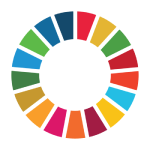THE KEY TO CLEANING AND WASTE MANAGEMENT LOCATES IN THE SEPARATION

The PPM Team for Independent Waste Sorting Management Department of Administrative Education, FISE UNY, has held an “Independent Waste Sorting Management Training” in Dukuh Paduresan. This training aims to increase public awareness of the importance of sorting household waste and preserving the surrounding environment.
This activity is motivated by the fact that people in the area have bad habits in waste management, namely by throwing garbage into the Celeng River. Even though it is a village area, the people in the area have limited land to dispose of garbage disposal pits. So far, household waste management has only been limited to moving household waste to be disposed of to the TPS or to the river. The habit of littering into the river has become a culture for the people there. This is due to the low level of public awareness and the new waste transportation by the Bantul Regency Sanitation Service. This creates a foul odor and an unhealthy environment. The community also has not done waste sorting independently. This condition is due to the limited number of trash cans in each house and Temporary Waste Shelters (TPS).
The obstacles faced by the community in the Imogiri area include:
-
There is no separate trash can for organic and non-organic waste in each household.
-
There is no temporary waste collection site at the RW, hamlet, or even village level. The existing household waste can accumulate because there is no transportation of household waste to the final waste disposal site.
-
There has been no effort from the Bantul Regency Government to accommodate the needs of the community.
-
Public awareness is still low regarding the dangers of waste, which will continue to be a ticking time bomb for health and environmental conservation.
-
The community does not yet have the skills to process organic and non-organic waste so that it is more efficient and has more value for the community.
The PPM Team for Independent Waste Sorting Management Department of Administrative Education, FISE UNY, has held an “Independent Waste Sorting Management Training” in Dukuh Paduresan. This training aims to increase public awareness of the importance of sorting household waste and preserving the surrounding environment.
This activity is motivated by the fact that people in the area have bad habits in waste management, namely by throwing garbage into the Celeng River. Even though it is a village area, the people in the area have limited land to dispose of garbage disposal pits. So far, household waste management has only been limited to moving household waste to be disposed of to the TPS or to the river. The habit of littering into the river has become a culture for the people there. This is due to the low level of public awareness and the new waste transportation by the Bantul Regency Sanitation Service. This creates a foul odor and an unhealthy environment. The community also has not done waste sorting independently. This condition is due to the limited number of trash cans in each house and Temporary Waste Shelters (TPS).
The obstacles faced by the community in the Imogiri area include:
-
There is no separate trash can for organic and non-organic waste in each household.
-
There is no temporary waste collection site at the RW, hamlet, or even village level. The existing household waste can accumulate because there is no transportation of household waste to the final waste disposal site.
-
There has been no effort from the Bantul Regency Government to accommodate the needs of the community.
-
Public awareness is still low regarding the dangers of waste, which will continue to be a ticking time bomb for health and environmental conservation.
-
The community does not yet have the skills to process organic and non-organic waste so that it is more efficient and has more value for the community.
Source Link : http://fis.uny.ac.id/id/berita/kunci-kebersihan-dan-pengelolaan-sampah-terletak-pada-pemilahan.html






